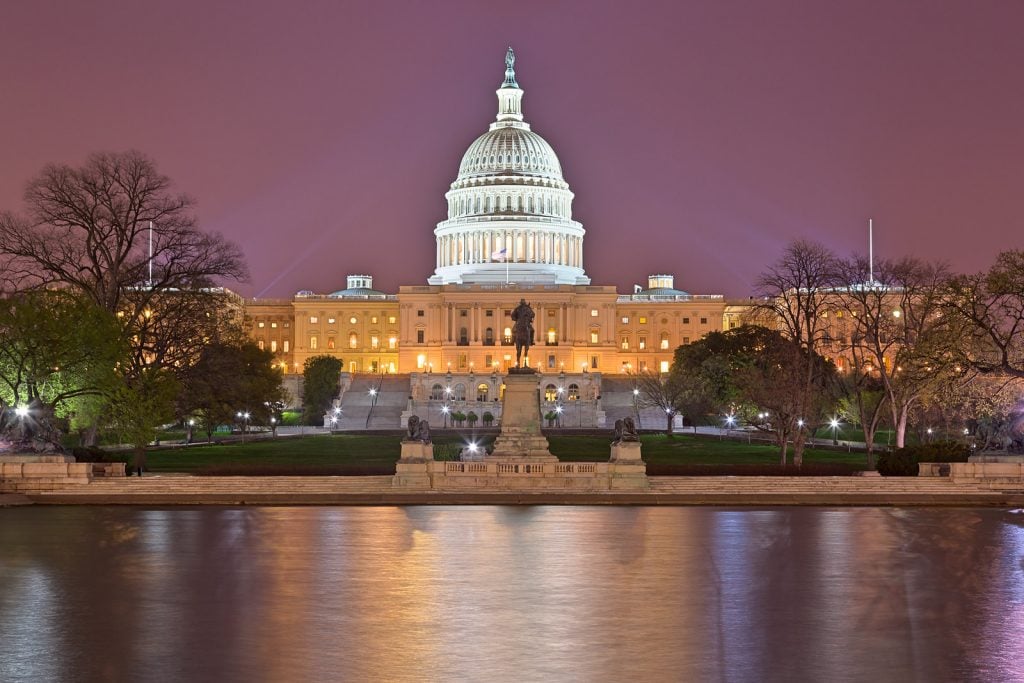Law & Politics
Here’s How a New Anti-Money Laundering Law Impacts Self-Employed Creatives in the U.S.
Artists with LLCs have until January 2025 to file the paperwork or possibly face hefty fines or jail.

Artists with LLCs have until January 2025 to file the paperwork or possibly face hefty fines or jail.

Adam Schrader

A law enacted in 2021 to combat money laundering, tax fraud, and corruption went into effect on January 1, 2024, posing a legal risk for artists who do not comply, experts are warning.
Hannah Cole, a tax professional and artist herself, penned an op-ed in Hyperallergic on Tuesday, revealing that Corporate Transparency Act applies to self-employed artists. She is the founder of Sunlight Tax, a firm that educates creatives about taxes and accounting.
“My biggest concern, as someone who helps creative people manage the taxes and business setup for being self-employed, is that a lot of artists may miss the memo on this law, or assume that it’s aimed at bigger corporations, and that it doesn’t apply to them,” Cole said in emailed remarks to Artnet News.
The law is aimed specifically at limited liability corporations formed by one or two people to curb financial crimes that can be difficult for law enforcement to track. Some states do not require disclosure of the beneficial owners of LLCs, an impediment to law enforcement.
“This is a good law, and it will help law enforcement prosecute some of the most heinous crimes. But it’s important for everyone with an existing LLC or considering forming an LLC to know that they do have some paperwork to file,” Cole said. “It takes about five minutes, and it’s free. But artists definitely need to know that the law does apply to them.”
The Financial Crimes Enforcement Network, an agency in the U.S. Treasury Department known as FinCEN, said in a news release that all existing companies must file the paperwork by January 1, 2025. New companies formed beginning in 2024 will need to file the paperwork within 90 days. The paperwork only needs to be filed once, according to the FinCEN website. However, an article from the U.S. Chamber of Commerce indicates that the initial filing period will not be the only time business owners will be required to file the report to FinCEN.
For now, artists and small business owners are required to provide information for an LLC’s beneficial owners, including names, dates of birth, addresses, and a passport number or other official identification number outlined by officials. “This effort will equip law enforcement and other partners with the information they need to disrupt financial anonymity that enables crimes such as corruption, drug trafficking, and terrorism,” the Treasury Department said in a fact sheet.
In September, FinCEN issued a rule describing who must file the paperwork and when it is due. Artists are advised to check the agency’s website if in doubt about whether the law applies to them.
In her op-ed, Cole described the stiff penalties for failing to comply with the new law. Those found in violation of it could be fined $500 per day up to $10,000 or even face two years in prison.
“One of the major benefits of LLC is that it provides a great deal of flexibility for its owners. Through an LLC, its owner, in this case the artist, has options in regard to structuring the management of their entity, and can assign management control to others,” Katarina Feder of the Artist Rights Society said in an email.
She said that LLCs have a “perpetual existence,” which means that the ownership of the LLC can change without triggering the dissolution of the company, a structure that can be “extremely attractive” to artists who are legacy planning.
“Should the artist pass, or be otherwise incapacitated, the LLC can continue to function in the way that the artist stipulated,” Feder said. “This level of control that an LLC allows for can be a major benefit to artists in safeguarding and protecting their legacy.”
Cole added that another benefit of artists creating an LLC is that it provides a barrier, technically called a “corporate veil,” that is often used to shield a business owner and their assets from personal liability if facing a lawsuit.
“So if an artist forms an LLC, they do it for liability purposes. They will continue to file taxes as an individual. No change there,” Cole said. “To file taxes differently, you need to elect a different tax entity, such as an S Corporation, a C Corporation, or a Partnership. Even a 501c3 or other non-profit. You can be an LLC and have any one of those types of tax entities layered on top.”
More Trending Stories:
Art Dealers Christina and Emmanuel Di Donna on Their Special Holiday Rituals
Stefanie Heinze Paints Richly Ambiguous Worlds. Collectors Are Obsessed
Inspector Schachter Uncovers Allegations Regarding the Latest Art World Scandal—And It’s a Doozy
Archaeologists Call Foul on the Purported Discovery of a 27,000-Year-Old Pyramid
The Sprawling Legal Dispute Between Yves Bouvier and Dmitry Rybolovlev Is Finally Over